
17 Jul Governor Emmanuel Tale of Commitment, the Dogged Days in the Frontline of Covid-19 Battle.
It was the world’s most dreadful nightmarish moment that sent shivers through the spines of the global fabric. What began like a mere rumour of fever in faraway Wuhan, China, on November 2019, flared like a wildfire to scourge global existence, destabilizing the global community and replacing old traditions of livelihood with a resurgence of new patterns alien to mankind. The world witnessed for the first time (and perhaps the last) the worst moment of fear.
Akwa Ibom Witnessed the First Case
The first case of Covid-19 was announced in February 2020. It was a moment of panic, but somewhat unbelievable. The panic streamed from varying stems – from the dearth of healthcare facility to the cynical doomsday prediction of the Gates. That year, Bill Gates predicted that Africa would be the worst hit by the pandemic even as corpses will wreath the streets of the continent. That alone was enough to inject fear into the continent, given the poor healthcare services and facilities typical of Third World countries. But the story was different for Akwa Ibom given the swift response by the State Government in providing medical facilities to the effect of the pandemic.
The Land of No Handshake
At face value, Uyo – the Akwa Ibom State’s capital city looks like any other bustling African Capital. Streets are snarled with traffic, restaurants are crowded and sidewalks and sports bars are packed with patrons cheering for their favourite soccer teams. But now, a closer look revealed a population in fear.
The virus was spread through contact with an infected person, whether symptomatic or asymptomatic and in a society habituated to close physical proximity, no one shakes hands anymore – an era that witnessed the demise of the traditional fatigue communion. On Sundays, churchgoers no longer go to churches. Sports we’re discouraged. The city’s air was heavy with the antiseptic stench of chlorine disinfectant wafting from the hand-washing stations found at every street corner and places of businesses. Security guards barricaded every sensitive entrance and gateway of the roads and streets and groceries. Offices wield infrared thermometers to check the temperatures of those who would enter. In a city stalked by death, there was no funeral, for, proper disposal of Covid-19 victims was one of the most essential factors in containing the spread and every corpse was a potential viral bomb and so assumed that every corpse was a potential Covid case. And the battle to contain the spread continued in an unforgiving spate, giving the government a junk of concern to worry about.

Dogged Days In Frontline of The Battle
The Akwa Ibom State Government, led by Mr. Udom Emmanuel pledged a more secure future for the citizenry against the stink of the pandemic, and thus launched the State’s health mercenaries including the State’s Environmental Protection Agency to the frontline of the battle, led by the Chairman – Obong Prince Ikim.
The war against the pandemic was not just a war of courage and commitment but one that must be matched by actions. It demanded public functionaries, like Obong Prince Ikim who manned the environmental management function of the State to do everything and anything within the ambit of the saddle to extend his responsibility to the pathetic reality of the day. And that is what the agency had done since the outbreak of the pandemic.
The exercise was to decontaminate public places from hospitals to markets to churches and sundry public areas of human contact. This was extended vigorously to the 31 local government areas of the State. In the long run of the exercise, it was discovered that the hinterlands were becoming vulnerable as contact tracing of fleeing victims led to the villages, leaving room for community transmission of the virus. I’m day-in-day- out, concerted efforts in decontaminating public places in rural communities.
The decontamination team laboured under extreme risk of contagion, sweltering under layers of protective plastics to penetrate infected areas. The staffers must wear cumbersome bio-hazard suits to do their work and getting new personnel trained for the work must take some weeks. It was a tedious battle for Ikim. He had no choice but to be dogged in the face of the pandemic to help government contain the spread.
In an interview at the General Hospital, Iquita, Oron LGA, he averred that the exercise was as a continuum as the spread was. “The thing is getting more serious than was expected and we must be turgid as an unforgiving soldier at a waterfront “, Ikim never backtracked from that pledge – he fought to the finish line.
A Buffer Was At Hand
Meanwhile, the successes recorded in combating the pandemic in the State were buffered by a second, more obvious prospect – the revamp of a collapsed State’s Healthcare system that was eroding into the abyss before the governor Emmanuel administration. The Akwa Ibom healthcare system, was proactive at the face of the pandemic. It was unlike the cases in several states in Nigeria. In fact, it was a moment that Nigerians decried the unbecoming attitude of government officials who habitually neglected the country’s healthcare for receiving treatments abroad. The outbreak of the pandemic was an eye opener that all was not well with the country – the virus came as a thief
– so unexpectedly to meet Nigerians in a debased defense mechanism – the Health Care system. But Akwa Ibom was a different story.



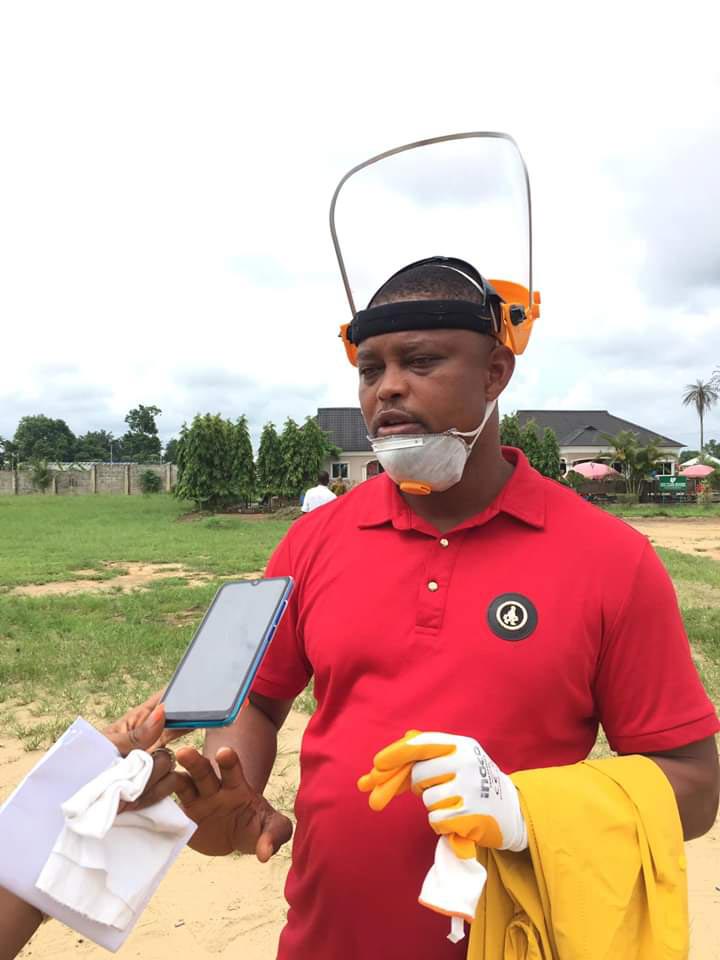
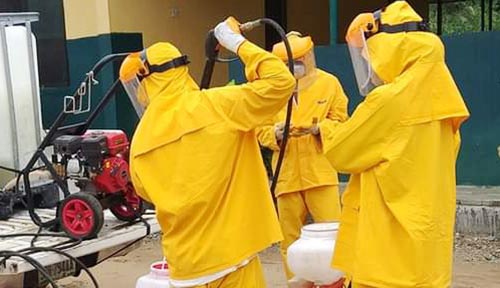
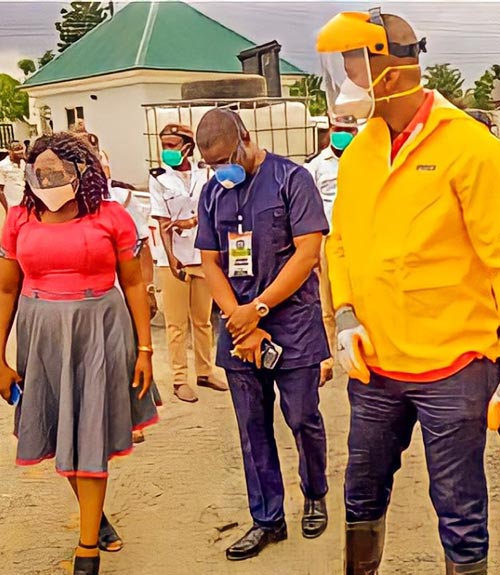
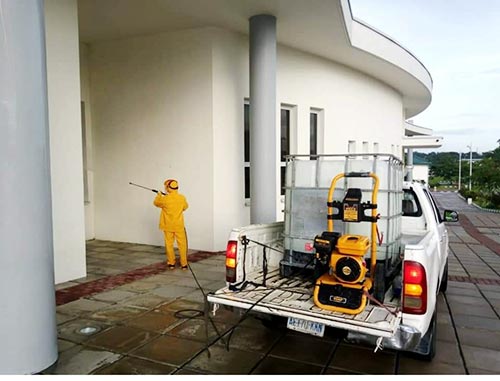
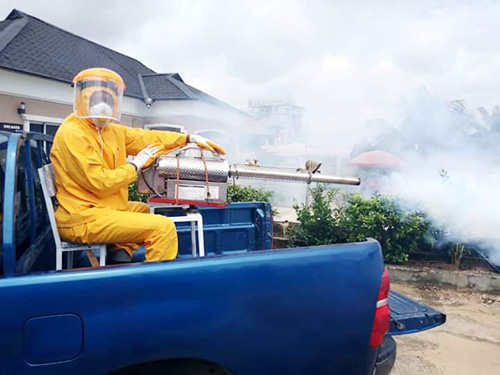
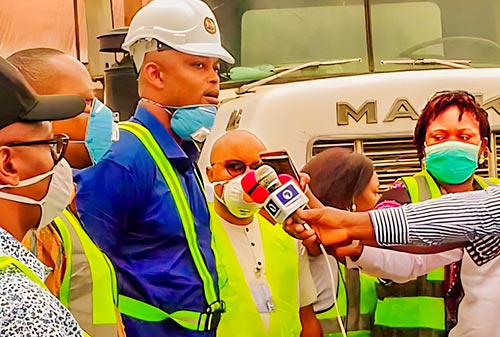
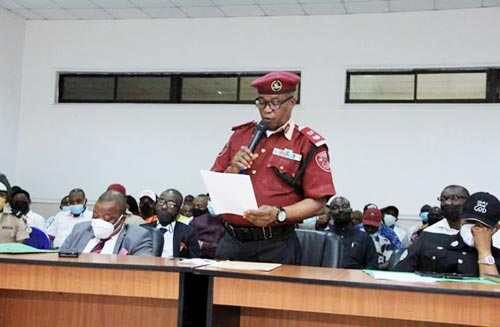
Sorry, the comment form is closed at this time.